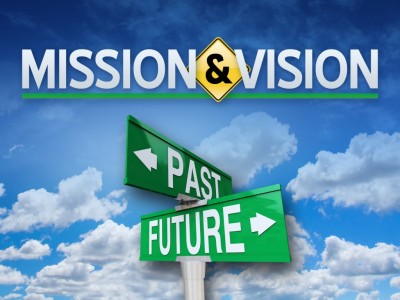Remember when they had vision

It seems Prime Minister Anthony Albanese does. In Brisbane this week he announced that the ALP Government would be considering legislation that would bring some high technology manufacturing back to Australia. While some of us may be pining for the return of the ‘Aussie designed and made’ Holden or Ford, along with the Lightburn fridge, AWA Television and so on, that’s unlikely to be what he was talking about. It’s also fairly difficult to claim that Holden and Ford were wholly Australian anyway; as the ultimate decisions were made in Detroit and Dearborn respectively.
What Albanese is more likely to be talking about is the recent announcements regarding measures to support solar panel manufacturing as well as the machinery needed to make green hydrogen. No doubt there is more to come. Australia used to make solar panels and we had world leading technology. But we stopped partly because the government of the day decided not to provide some support when cheaper and initially less well made panels began to flood the market. While Abbott & Hockey withdrew support from Australia’s motor vehicle industry both sides have form in this area thanks to neo-liberal economic policy.
Albanese isn’t the only leader of a country that is promoting a process to bring manufacturing home. The USA’s Inflation Reduction Act is one example, with other ‘well developed’ economies either planning or implementing similar packages. And it makes sense. While not everything will work and bring us global domination in a particular area, the economics stack up. A local workforce employed in the design and manufacture of material and items required around the world pays taxes and funds the services and retailers in the area they live in (who then go on to pay more taxes, wages and so on). It also makes us far less susceptible to supply shocks should something happen somewhere in the world that disrupts trade and commerce such as another pandemic or some tinpot dictator determining that he should take over another country.
The media has noticed the change inside the government as well, an example being Michelle Grattan’s piece in The Conversation when’re she discusses Albanese’s Industry Policy as well as the governments change in attitude to the war in Palestine.
There is a good chance that no-one expected Opposition Leader Dutton to come out in full throated support for the governments apparently changes in policy on manufacturing and the worsening situation in the middle east, it’s telling what he did do. When Foreign Minister Penny Wong stated that Australia, like some other nations around the world, are considering options regarding recognising the Palestinian state, Dutton (ably assisted by his usual mouthpieces employed by ‘Sky after dark’, The Australian and Nine Media) was horrified. Rather than couch his opposition in terms of someone who aspires to the political leader of our country, he seems to think of something abhorrent to say and then goes to the next level. There is no correlation between a Palestinian protest in Sydney and a terrorist event in Tasmania, despite Dutton’s claim he was demonstrating how a conservative political leader might have acted. There has also been little if any comment on Albanese’s statement regarding supporting manufacturing in Australia.
It takes time to be constantly negative. Every idea and suggestion that is made has to be examined to look for the hidden agenda, half truth or trap that might be able to be blown out of all proportion to placate the ever diminishing ‘rusted on’ Coalition supporter as well as those further to the right. Half truths can also come back to discredit you. Recently Dutton flew to Western Australia to attend a birthday soirée hosted by Gina Reinhart. Dutton claimed he paid his own way and the records submitted to the Parliament support this. What Dutton didn’t mention is that the cost of travel for the staff that accompanied him was billed to the taxpayer and totalled around $6,000. Apparently Dutton was at Reinhart’s birthday party for under an hour and was back on the hustings in Dunkley talking about the cost of living the next morning! It’s doubtful Dutton’s staff would have felt an overwhelming need to be in Western Australia for an hour or so if Dutton wasn’t going there.
Albanese’s vision of the future may not be as rosy as the rhetoric suggests, and we have little detail on what the vision really is. No doubt there will be challenges and blind alleys on the way to a more vibrant and successful country. Dutton in contrast seems to believe that negativity and constant niggling will convince enough people to vote him into power at the next election.
While we might still have two older white men in change at the next election, one hopefully will be able to sell policies with positivity and vision while the other still apparently seeks a return to the days and practices of the Abbott/Turnbull/Morrison government. If so, it might be a really interesting contest of ideas – at last!
Like what we do at The AIMN? You’ll like it even more knowing that your donation will help us to keep up the good fight. Chuck in a few bucks and see just how far it goes! Your contribution to help with the running costs of this site will be gratefully accepted. You can donate through PayPal or credit card via the button below, or donate via bank transfer: BSB: 062500; A/c no: 10495969